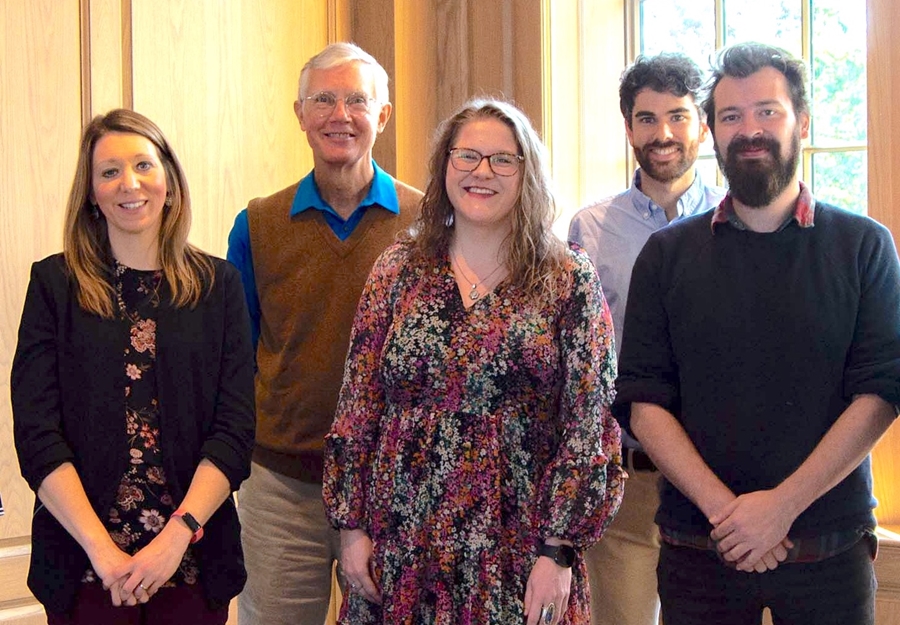
Since it began two years ago, the Fulbright College of Arts and Sciences' Instructor Coach Program has empowered more than 1,000 students and contributed to increasing the U of A's retention rate to 87% by providing direct one-on-one support to students in the college.
These instructor coaches carry a 75% teaching load in Fulbright College alongside their 25% coaching load where they proactively help students successfully navigate their personal and academic life at the university.
"Having a coach my first semester of college really benefitted me," said one student who is supported by an instructor coach. "They were an accountability partner for me and helped me clarify my goals. There were times in the semester that I thought that I was going to fail a class, but since I had a coach to talk through these challenges, I was able to succeed."
Toby Phebus, assistant director of retention in Fulbright College, commends the program for its success in supporting students in the college.
"Clearly this program is a big win," Phebus said.
The funding for the program originally came from CARES Act, a federal program providing support to students impacted by the pandemic. Then-Interim Chancellor Charles Robinson wanted to create a team of instructors who could support the challenges that students faced after the pandemic.
Since its inception, this highly successful initiative has had 22 Fulbright College faculty from anthropology, biology, English, history, journalism, mathematical sciences, political science, physics, psychology and world languages, literatures and cultures departments serve as instructor coaches.
"When we started the program, the goal was to connect students with resources through individualized attention," said Deb Korth, assistant dean for student success in Fulbright College. "Whether it is because they are a first-year students or they would just benefit from additional individualized support, we know these students can thrive in college."
Testimonies from additional Fulbright College students prove that this program has been a valuable academic resource.
"Having someone to turn to that could tap into school resources in ways only an instructor can is something that all students need from time to time," said another student.
Michael McCoy, an instructor coach from the Department of History, believes that connecting a student one-on-one with an advocate for their success is paramount to the program's mission.
"My role is mainly one of listening and asking questions to help students think through their own habits, if they aren't already aware of them, so they can make small changes that might lead to more consistent success," McCoy said.
Danielle Maynard, an instructor coach from the Department of Biological Sciences, said the program has also been eye-opening for her in understanding how to better support students.
"The greatest benefit for me was getting a chance to understand what some students go through and to understand that they have a life outside the classroom that affects how they do in class," Maynard said.
Phebus added that the instructor-student relationship is vital. Many students need that face-to-face time with instructors.
"We identified that instructors are the best line of communication to students," Phebus said. "Instructors are the first ones to notice when a student might need a little push. When students need help, instructors are their first go-to resource."
In addition, instructor coaches participate in professional development for teaching and mentoring. Each instructor coach also participates in courses through the Association of College and University Educators (ACUE) micro credentialing program.
"The Instructor Coach Program is designed with student impact in mind, and our coaches are committed to putting in the work to grow as individuals so they can help students," said Lynn Meade, teaching assistant professor in Fulbright College Student Success who helps facilitate the ACUE program.
"Our coaches are participating in rigorous faculty development to be student-centered in the classroom, and they are receiving coaching training so they can be most supportive as coaches," Meade added.
To learn more about this student success initiative in Fulbright College and to meet the full ICP team, visit fulbright.uark.edu/student-success.
Topics
Contacts
Deb Korth , assistant dean for student success
Fulbright College of Arts and Sciences
479-575-7661,